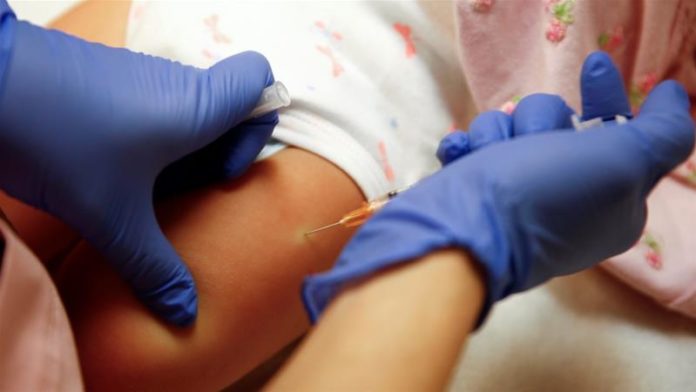Long-term strategic investment in vaccine research is crucial to secure global health against current and emerging diseases, according to a new report published today by the British Society for Immunology.
The UK is a world leader in immunology and vaccine research, but to maintain this status in life-saving research, we must continue to support global cooperation and capabilities to ensure we are able to respond quickly to future disease outbreaks.
After two centuries of pioneering research, UK immunity research continues to top the G7 countries in terms of its impact and influence, producing 14% of the publications in the field. The UK contains the perfect ecosystem for vaccine innovation with a rich mix of academic research into epidemiology and immunology and a thriving industrial sector, supported by national and international philanthropic and government funding.
Vaccination is one of the most successful and cost-effective public health measures in history and all children deserve to have access to it. Gavi, the Vaccine Alliance, has made considerable progress in this quarter. UK investment alone in Gavi has enabled 760 million children to be immunised and saved 1.4 million lives over the last five years. This type of investment in international collaboration and vaccine R&D is the key to protecting the health of the global population.
The British Society for Immunology’s report underlines the challenges and opportunities in the vaccine development landscape in the UK, and the need for long-term strategic funding of research. As we have seen recently with SARS-CoV-2, our globalised world increases the threat of disease, but it also provides a platform for international scientific collaboration, which can drive forward the vaccine development process. Building on the UK Government’s investment in CEPI, a long-term investment plan in basic research and vaccine development will ensure we have the infrastructure in place to move quickly to combat future infectious disease outbreaks, saving lives and making our world a more stable and safer place to live.
Professor Arne Akbar, President of the British Society for Immunology, said:
“Vaccines save lives, it’s as simple as that. Every death from a vaccine-preventable disease is a tragedy and the global health community must work together to get vaccines to all who need them. The UK has been at the forefront of vaccine research for past 200 years, with innovations from these shores saving many millions of lives around the world. However, we cannot be complacent. With our world becoming ever more interconnected, we must continue to innovate and support our world-leading institutions and researchers in their efforts to develop vaccines against a wider range of diseases. We are sure to face more outbreaks of new infectious diseases in the future. To put us in the best position to respond quickly, we need to continue to invest now and fund a wide variety of vaccine research so that should the worst happen, the UK and the world is ready to respond.”
Professor Faith Osier, Professor of Malaria Immunology at the University of Oxford and President of the International Union of Immunological Sciences, said:
“Continuing our work to develop new vaccines against deadly and debilitating diseases has never been more important. However, these efforts will succeed quicker if we embrace collaboration to bring together researchers from around the world with different skills, experience and knowledge to drive forward our understanding of the immune response. It is through international partnership that we can speed up the vaccine development pathway and deliver new life-saving vaccines where they are most needed.”







